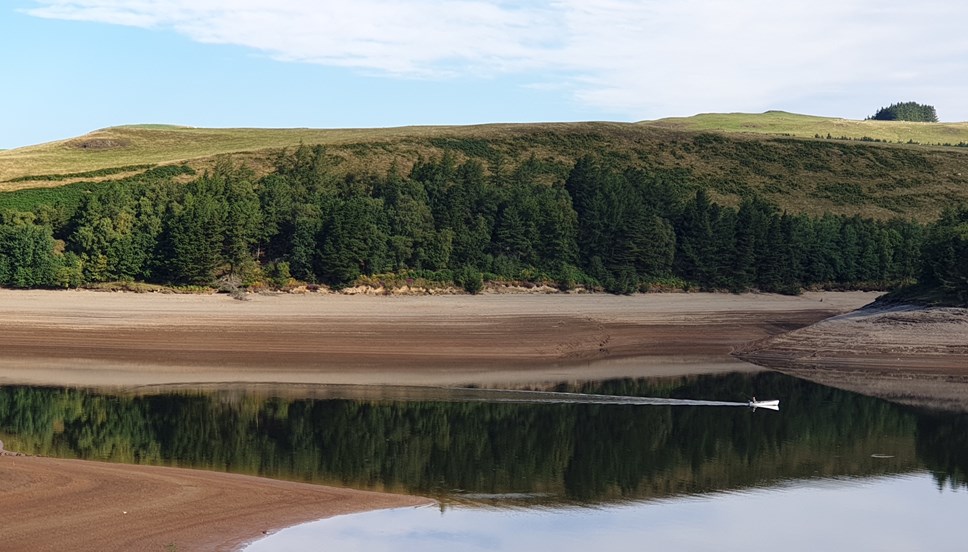
Minister for Climate Change asks Wales to be ‘water aware’ as Drought Liaison Group prepares for summer
Y Gweinidog Newid Hinsawdd yn gofyn i Gymru ystyried eu defnydd o ddŵr wrth i’r Grŵp Cyswllt Sychder baratoi ar gyfer yr haf
In Water Saving Week, Minister for Climate Change Julie James is appealing to everyone in Wales to be conscious of their water use as we approach summer.
In a statement to the Senedd today, the Minister confirmed that Wales’ Drought Liaison Group – consisting of water companies, Natural Resources Wales, the Met Office and other partners- has officially started meeting to plan ahead for all weather scenarios.
A particularly dry February this year was followed by the wettest March in forty years, with Wales experiencing double the long-term average rainfall. This has been good news for reservoirs, rivers and groundwater supply as stocks under pressure have been replenished.
Unfortunately- the group says- this doesn’t mean Wales can rest on its laurels. Weather is difficult to predict and climate change means that we face wetter winters, drier summers, rising sea levels, and more frequent and intense extreme weather events.
Between March and September 2022, Wales received just 64% of the long-term average rainfall for this period, making it the driest seven-month period in 150 years. This placed significant pressures on water infrastructure and supply, wildlife and habitats, and the agriculture sector, leading to a declaration of drought. Back-to-back years of continuous droughts will decrease resilience year on year leading to ever worsening situations.
Minister for Climate Change Julie James said:
“This week is Water Saving Week, and I am encouraging everyone in Wales to be water aware. Please think about your current water use and any ways in which you can help save water.
“Making small adjustments can make a big difference. Reducing shower time by a minute, turning the tap off when you brush your teeth and not letting the tap run when you wash your dishes, are great starts.
“If we use less, we will reduce the energy used for water supply and wastewater treatment, which will help reduce our carbon footprint and make us more resilient to climate change.
“Thanks to the wettest March in forty years, the drought status in Wales is normal. However, as we have seen all too often in the past, the vagaries of the weather and climate impacts mean that conditions can change rapidly.”
Waterwise’s website provides details on how to get involved in Water Saving Week and how to use water wisely. Wales’ water companies, Dŵr Cymru Welsh Water (DCWW) and Hafren Dyfrdwy (HD), offer advice to customers on their websites and will be running campaigns to share top tips in how to save water.
Notes to editors
The Climate Change Committee’s latest UK Climate Risk Independent Assessment, emphasises the risks of reduced summer rainfall to maintaining sufficient water supplies. The report highlights significant risks to water infrastructure such as reservoirs, dams, pipelines, and treatment plants also, stemming from the increased risk of flooding and subsidence.
Water companies have set out in their Water Resource Management Plans (DCWW and HD) how they will maintain the balance between supply and demand by reducing leakage, decreasing water consumption and finding new ways of being resilient.
Image: Clywedog Reservoir. Copyright - Natural Resource Wales
